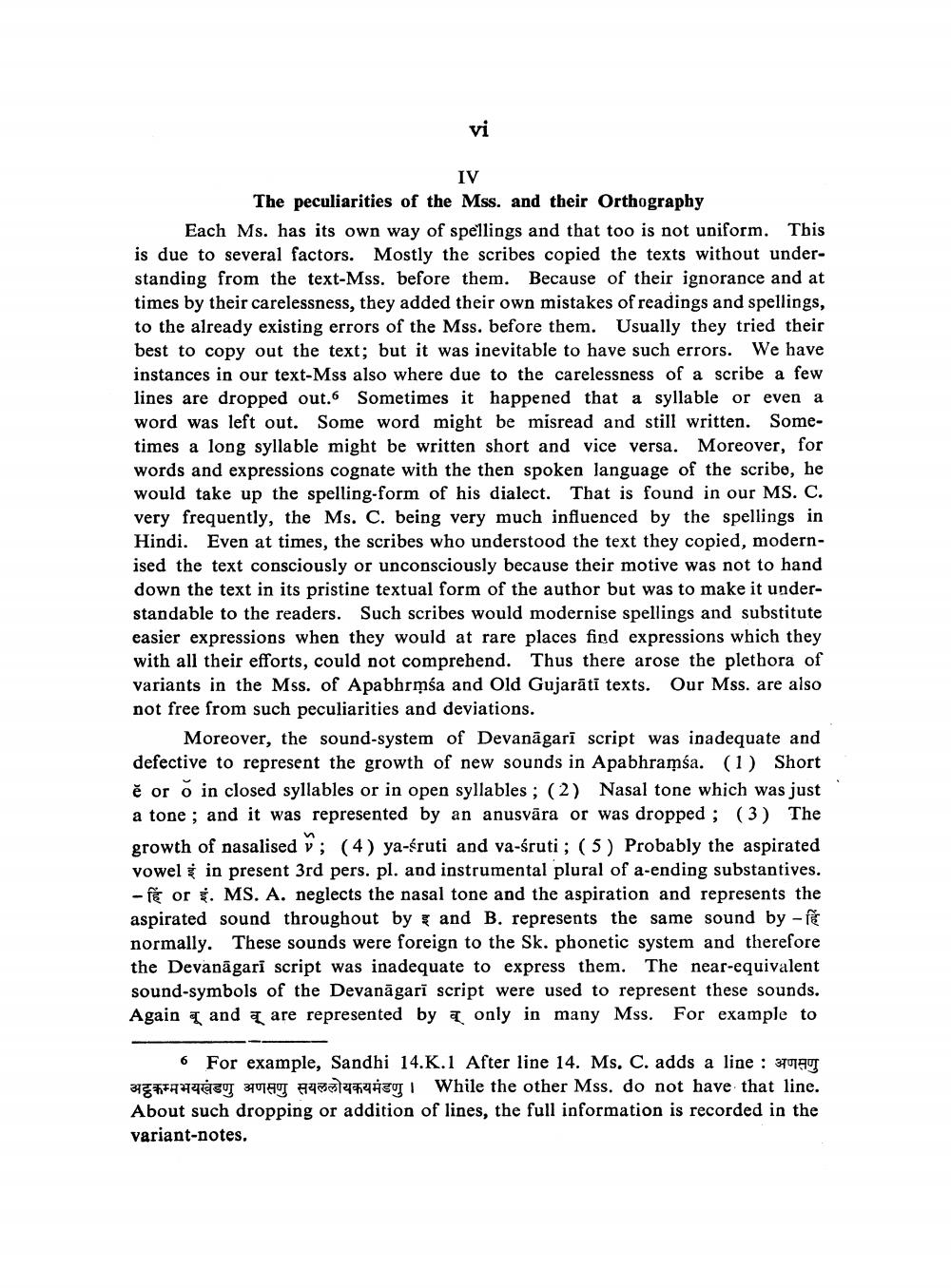________________
IV The peculiarities of the Mss. and their Orthography Each Ms. has its own way of spellings and that too is not uniform. This is due to several factors. Mostly the scribes copied the texts without understanding from the text-Mss. before them. Because of their ignorance and at times by their carelessness, they added their own mistakes of readings and spellings, to the already existing errors of the Mss. before them. Usually they tried their best to copy out the text; but it was inevitable to have such errors. We have instances in our text-Mss also where due to the carelessness of a scribe a few lines are dropped out. Sometimes it happened that a syllable or even a word was left out. Some word might be misread and still written. Sometimes a long syllable might be written short and vice versa. Moreover, for words and expressions cognate with the then spoken language of the scribe, he would take up the spelling-form of his dialect. That is found in our MS. C. very frequently, the Ms. C. being very much influenced by the spellings in Hindi. Even at times, the scribes who understood the text they copied, modernised the text consciously or unconsciously because their motive was not to hand down the text in its pristine textual form of the author but was to make it understandable to the readers. Such scribes would modernise spellings and substitute easier expressions when they would at rare places find expressions which they with all their efforts, could not comprehend. Thus there arose the plethora of variants in the Mss. of Apabbrņsa and Old Gujarāti texts. Our Mss. are also not free from such peculiarities and deviations.
Moreover, the sound-system of Devanagari script was inadequate and defective to represent the growth of new sounds in Apabhramśa. (1) Short ě or o in closed syllables or in open syllables ; (2) Nasal tone which was just a tone ; and it was represented by an anusvāra or was dropped ; (3) The growth of nasalised v; (4) ya-śruti and va-śruti; (5) Probably the aspirated vowel in present 3rd pers. pl. and instrumental plural of a-ending substantives. - or & MS. A. neglects the nasal tone and the aspiration and represents the aspirated sound throughout by and B. represents the same sound by - normally. These sounds were foreign to the Sk. phonetic system and therefore the Devanāgari script was inadequate to express them. The near-equivalent sound-symbols of the Devanāgari script were used to represent these sounds. Again q and care represented by a only in many Mss. For example to
6 For example, Sandhi 14.K.1 After line 14. Ms. C. adds a line : 30194 31882748EU 14 45481 While the other Mss. do not have that line. About such dropping or addition of lines, the full information is recorded in the variant-notes.




